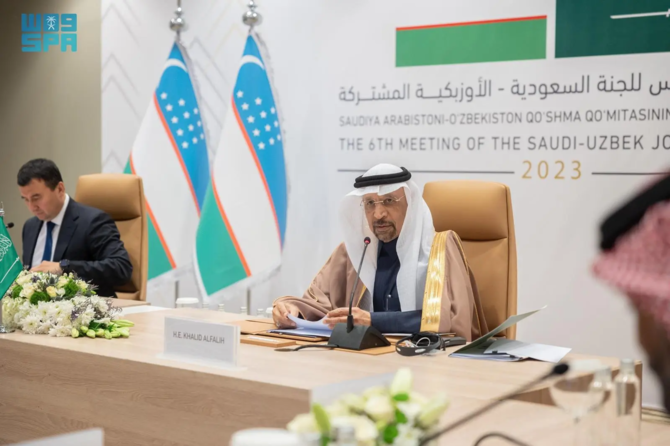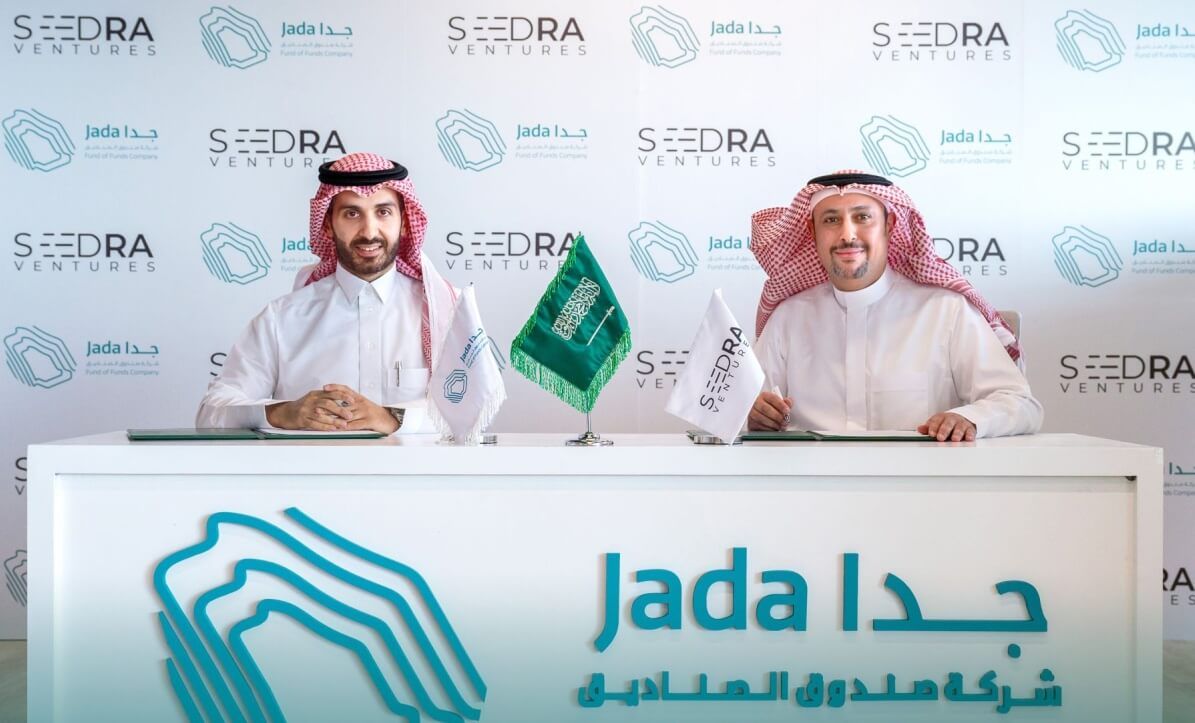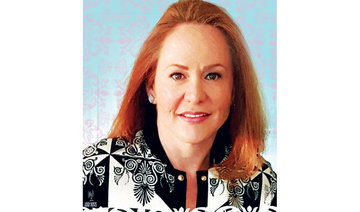JEDDAH: Saudi Arabia’s hosting of the 2034 FIFA World Cup will not only showcase the Kingdom’s cultural and administrative capabilities but also serve as a catalyst for significant job creation and infrastructure development, according to experts.
Saudi Arabia is the only country to submit a bid to host the football tournament, and the decision will be rubber stamped by FIFA on Dec. 11.
It will be the second time the global event has been held in the Middle East, with Qatar staging the competition in 2022.
Experts told Arab News that Saudi Arabia could expect a GDP boost of between $9 billion and $14 billion, the creation of 1.5 million new jobs, and the construction of 230,000 hotel rooms developed across five host cities to accommodate visiting fans and dignitaries.
Yaseen Ghulam, an associate professor of economics and director of research at the Riyadh-based Al-Yamamah University, emphasized that the World Cup will provide a unique platform to attract foreign direct investment, diversify income sources, and boost tourism, aligning seamlessly with Saudi Arabia’s Vision 2030 objectives.
However, he asserted that the associated costs and logistical challenges must be managed strategically to maximize long-term benefits for the nation.
“The event will help the Kingdom to not only get noticed for its administrative capabilities and cultural depth but, more importantly, will help it to showcase the investment opportunities that currently exist in Saudi Arabia,” he told Arab News.
Ghulam pointed out that the event demands a significant commitment to quickly building state-of-the-art facilities, including stadiums, hotels, and roads, as well as training facilities, transportation networks, and tourist attractions.
Ghulam noted that Brazil’s World Cup cost $18 billion, while Russia spent $13 billion, with half allocated to infrastructure, including 12 stadiums, as well as hospitals, airports, train stations, motorways, and hotels.
He said that while Qatar invested $200 billion to $300 billion over a decade ahead of its 2022 hosting, the amount spent on stadiums was no more that $7 billion, with the rest on infrastructure developments.
Ghulam explained that hosting the World Cup offers both direct and indirect benefits, with economists estimating short-term gains from visitor spending and broadcasting rights to be about 1 percent of global GDP.
For Qatar, he said, visitor expenditure on tourism and revenue from event-related programming is believed to have been between $2.3 billion and $4.1 billion.
“Considering the gross value added, this amounts to $1.6 billion to $2.4 billion, which represents 0.7 percent to 1 percent of Qatar’s GDP in 2022,” Ghulam said, adding that South Korea also experienced the same numbers in 2002.
The associate professor believes Saudi Arabia could expect to see a GDP boost of $9 billion to $14 billion, based on previous events, the Kingdom’s geographical location, and Saudi Arabia’s growing tourism infrastructure.
“Qatar attracted around a million spectators, and Saudi Arabia could double this number due to the religious tourism potential of Muslim spectators alongside the geographic diversity of the country,” he said.
Ghulam stressed the importance of affordability when it comes to accommodation for traveling fans, noting that Qatar’s hotels saw only 59 percent occupancy during the 2022 World Cup due to high prices, with many spectators opting to stay in neighboring countries and use shuttle services.
The economics professor noted that indirect benefits could arise before and after the tournament through higher foreign direct investment and increased tourism from improved experiences during the event. He also mentioned emerging evidence of increased FDI following World Cup hosting.
“For most of the countries that have hosted the same event, the impact started immediately after the announcement. One recent study estimates the magnitude of such an impact, concluding that an average increase in inward foreign direct investment of $4.33 billion is linked to hosting the FIFA World Cup,” he said.
Ghulam added that FDI has increased by a greater amount in well-governed countries, indicating that governance quality is a significant moderating element.
“The evidence shows that Qatar managed to increase the contribution of non-hydrocarbon income by 40 percent during the decade of preparation for the World Cup by investing in infrastructure and other diversification related activities alongside attracting FDI,” he said.
He noted that the multiplier effect of these investments has boosted other income sources, emphasizing that Saudi Arabia’s current non-hydrocarbon income of $453 billion could significantly rise over the next decade in preparation for the event.
Ghulam highlighted that the event would significantly influence Saudi Arabia’s infrastructure development, with stadiums and fan zones benefiting local communities and contributing to the non-hydrocarbon GDP share in line with Vision 2030.
He emphasized the importance of maintaining and utilizing these stadiums for long-term gains, noting that maintenance costs could be significant.
Highlighting the long-term economic impact of the World Cup on local businesses and tourism, he noted that Saudi Arabia topped the UN’s list for significant foreign tourism growth in 2023.
When it comes to job creation, the academic cited a report from Knight Frank which estimated the 2022 World Cup contributed to the creation of almost 850,000 additional jobs in Qatar’s residential sector between 2010 and 2022.
“Since the event in Saudi Arabia is expected to be prestigious and in fact better than previous events, one could extrapolate to more than 1.5 million new jobs, equating to 10 percent of the currently employed workforce,” Ghulam said.
Infrastructure boost
Waleed Al-Thabi, founder and CEO of Aljdwa, a leading Saudi firm specializing in project feasibility studies and development, told Arab News that hosting the 2034 FIFA World Cup is key to Saudi Arabia’s Vision 2030 initiative aimed at achieving significant economic growth.
Discussing how the preparation for the event would impact the Kingdom’s infrastructure development, he said that hosting the World Cup will establish a legacy of stadiums and sports facilities for future generations.
He added that over 130 training facilities will support players, teams, referees, and administrative staff participating in this event.
“Moreover, Saudi Arabia has developed logistics services, expanding the rail network, such as the Riyadh Metro project, which serves as the backbone of public transport in the capital. Initially designed to accommodate 1.2 million passengers daily, the network is projected to reach nearly 3.6 million passengers in its final phase,” Al-Thabi said.
The CEO noted that several regional and international airports are being developed, including King Salman International Airport in Riyadh, which will cover approximately 57 sq. km and rank among the largest airports globally, adding that the new Abha International Airport is also expected to serve around 10 million passengers annually by the end of 2027.
He highlighted that these advancements will enhance travel experiences for fans, improve transportation efficiency, and ensure maximum comfort and accessibility during the tournament.
The CEO expected that event will attract millions of tourists from around the world, leading to a significant increase in demand for hospitality facilities.
“Approximately 230,000 hotel rooms will be developed across the host cities. To maximize the Kingdom’s geographical advantages and diverse areas, the hosting plan will extend to ten supporting cities that will accommodate some of the participating teams’ training camps before and during the tournament,” he said.
With anticipated growth in tourism and commercial activity, Al-Thabi stressed the need for efficient Saudi companies in these sectors to capture a significant share of the cash flow generated during the event.
“Such cash flows contribute to reducing unemployment rates and stimulate the flow of funds within the economy, directly impacting the Kingdom’s GDP,” he said.
Al-Thabi added that jobs will primarily be in event management, security, hospitality, and transportation, as well as facility service and operations coordination, allowing employees to benefit from longer hours and higher incomes, thus enhancing living standards.
“Additionally, the construction sector will expand, creating jobs for engineers, architects, and construction workers, further advancing the Kingdom’s economic development,”
FDI rise
Abdullah Al-Maghlouth, a member of the Saudi Economic Association, stated that the Kingdom’s hosting of the 2034 World Cup will showcase an exceptional and unprecedented version of the tournament, harnessing Saudi strengths to delight football fans globally.
He pointed out that all the stadiums are designed to meet the Kingdom’s long-term infrastructure needs, noting that Saudi Arabia is also developing railway plans to connect with Gulf nations, enhancing the movement of fans and teams.
“While the opening and final matches of the 2034 World Cup will be held in the capital, Riyadh, the maximum distance a fan will need to travel within the Kingdom is two hours,” Al-Maghlouth said.
The Saudi economist further noted that the event will play a pivotal role in attracting foreign direct investment, as hosting plans include the construction of 11 new world-class stadiums and the development of 15 existing ones.
“These projects are expected to draw substantial foreign investment in construction and related services, such as transportation, accommodation, entertainment, and technology. This increased economic activity is anticipated to encourage more foreign companies to enter the Saudi market, thereby enhancing the volume of foreign direct investment,” he said.
Beyond the direct economic benefits, he continued, hosting the event represents an opportunity to develop infrastructure in the host cities.
“These cities will witness significant developments, including improvements to public transportation, roads, and public facilities. These enhancements will elevate the quality of life for residents and leave a sustainable legacy after the tournament concludes, strengthening the long-term competitiveness of these cities.” Al-Maghlouth said.
Furthermore, the event will enhance innovation and entrepreneurship, driving entrepreneurs to devise rapid solutions to challenges faced by organizers, he added.































